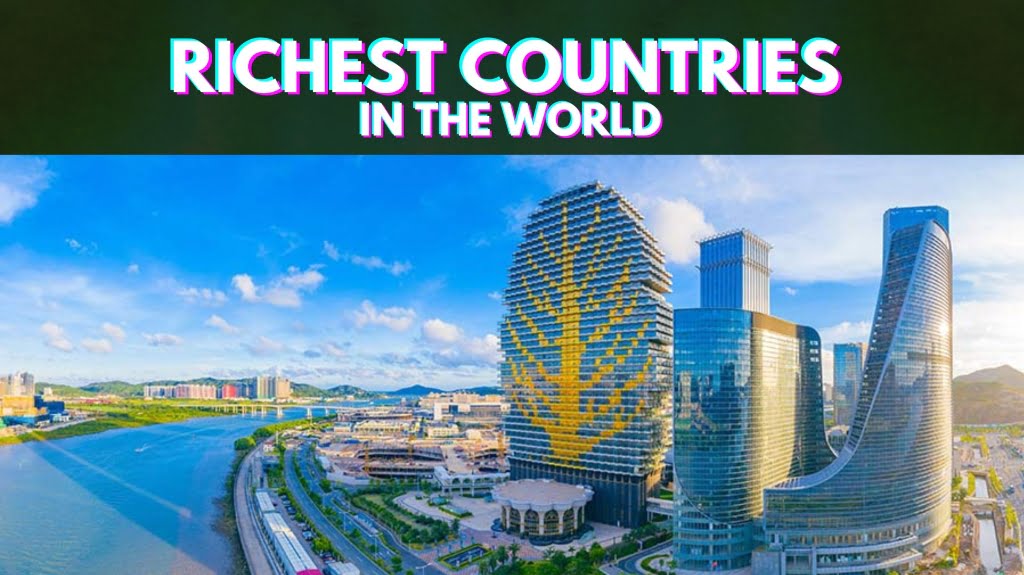In a world defined by economic prowess, there is constant curiosity about which nation can claim the title of the richest country. Wealth, when measured in terms of GDP, per capita income, or other economic indicators, gives us an insight into a country’s financial might and overall well-being.
This article will delve into the various aspects that contribute to the wealth of a nation and explore the contenders for the title of the richest country in the world

Defining Wealth
Table of Contents
Before we embark on our journey to uncover the richest country, it is crucial to understand the metrics used to measure wealth. Gross Domestic Product (GDP) is a widely accepted indicator, representing the total value of goods and services produced within a country’s borders.
However, GDP alone does not paint the complete picture. Factors such as income inequality, standard of living, and purchasing power must also be considered.
Economic Powerhouses
Several countries consistently emerge as contenders for the coveted title of the richest nation. While rankings may vary depending on the metric used, the following countries often find themselves at the top:
United States:
The United States, with its vast and diversified economy, has long been a global economic powerhouse. It boasts the world’s largest GDP, supported by sectors such as technology, finance, healthcare, and entertainment. The country’s entrepreneurial spirit and innovation continue to drive its economic growth.
China:
China’s rapid economic ascent has been a global phenomenon. With a population of over 1.4 billion, it has transformed into a manufacturing and exporting giant. The country has achieved remarkable GDP growth rates, investing heavily in infrastructure, technology, and innovation.
Japan:
Japan, renowned for its technological advancements and strong manufacturing base, consistently ranks among the world’s wealthiest nations. It has a highly skilled workforce, a strong emphasis on research and development, and globally recognized brands in various industries.
Germany:
Germany, often referred to as the economic engine of Europe, has a robust export-oriented economy. It is known for its precision engineering, automobile industry, and high-quality manufacturing. The country’s emphasis on innovation, research, and development has solidified its position among the world’s wealthiest nations.
Switzerland:
Switzerland, though geographically small, punches above its weight when it comes to wealth. Renowned for its banking sector, precision manufacturing, and high-end watches, Switzerland consistently ranks among the top countries in terms of GDP per capita.
Factors Contributing to Wealth

While the aforementioned countries have different paths to prosperity, certain factors play a vital role in their economic success:
Human Capital:
Investing in education, healthcare, and skills development enhances a country’s human capital. A highly skilled workforce drives innovation, productivity, and economic growth, contributing to overall wealth.
Natural Resources:
Countries blessed with abundant natural resources, such as oil, gas, minerals, or fertile land, often have a strong economic foundation. Efficient management and utilization of these resources can fuel economic growth and wealth creation.
Infrastructure Development:
Investing in robust infrastructure, including transportation, communication, and energy networks, facilitate trade, attracts investments, and boosts economic activities. Well-developed infrastructure is a critical factor in a country’s ability to generate wealth.
Political Stability and Governance:
Political stability and effective governance create an environment conducive to economic growth. Countries with strong institutions, low corruption levels, and favorable business climates tend to attract investments and foster sustainable wealth creation.
Conclusion
Determining the richest country in the world is a complex task, influenced by various factors and measurement criteria. The United States, China, Japan, Germany, and Switzerland are often recognized as economic powerhouses, each with its own unique strengths. These nations have excelled in leveraging their human capital, natural resources, infrastructure, and stable governance to drive economic growth and prosperity.
Read Also: The Most Powerful Person in the World: Unveiling Global Influence

